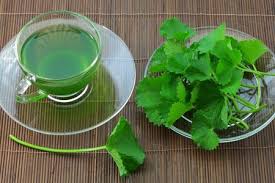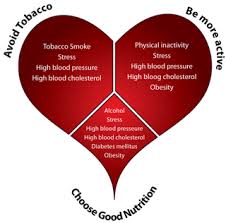Effects of Inflammation on the body organs
Effects of Inflammation on the body organs: Obesity and Depression are Symptoms of a Common Cause

Effects of Inflammation on the body organs can be very dangerous especially when the victim is also obese or overweight
Some of the health conditions affecting our life are known to us yet we often don’t notice them easily. Take for instance a problem of inflammation; many of us do not take notice of this until we experience an injury either by way of swellings, redness and pain flood that affects the area. But even with this indication, when we opted for treatment our focus is always on the pain and not the internal healing process. Inflammation can damage organs and cause disease, but its interference in the brain causes two common disorders. We are therefore going to be discussing the effects of inflammation on the body organs for better understanding of the body’s vulnerability to this complication. Doctor Dalal Akoury explains that ordinarily your body’s defense mechanism kicks in, and you don’t have to think too much about inflammation because it is always there when you need it.
However even though this is so, inflammation might also occur when you don’t need it, and if it does, it can cause problems. In some people, inflammation is present at very low levels. It is no wonder that many experts now believe that this type of low-grade, chronic inflammation is responsible for a litany of chronic conditions. Therefore when inflammation extents to the pancreas the affected person is at risk of getting diabetes. When it spreads to the immune system, you get cancer. And like cancer, this type of inflammation grows and spreads, damaging organs and causing all kinds of trouble.
Effects of Inflammation on the body organs: Weakened Signals
The speed with which inflammation spreads does not only cause damages to your organs, but also interferes with your brain’s signals and to the rest of your body systems. With such many conditions the trouble starts in the hypothalamus which is the command center of the brain. The command center then receives all these hormonal inputs that inform you when you’re tired or when to eat and what to do with those calories.
When you have inflammation, a protein called pro-inflammatory cytokines distorts those hormonal signals. As a result, inflammation might be causing conditions such as depression and obesity, which were correlated through research long before inflammation became a suspected culprit. Nonetheless when it comes to depression, those cytokines communicate with the brain to induce different depressive symptoms, such as sad mood, fatigue, altered sleep and social-behavioral withdrawal. Inflammation also drives obesity in a similar manner.
Effects of Inflammation on the body organs: Metabolic Syndrome
Inflammation has recently been linked with metabolic syndrome, which is a cluster of symptoms that raise your risk for chronic conditions such as heart disease, stroke and diabetes. Those symptoms include hypertension, low levels of HDL (good) cholesterol, above-normal blood glucose and triglyceride levels, and a large waist. Most people with metabolic syndrome are obese and inactive, so these symptoms have become associated with obesity. However, many obese people don’t have those symptoms. They fall into a category called metabolically healthy obese. It means they don’t look very good in a swimsuit, but if you look at their blood, they’re in pretty good shape. This is probably because they don’t have chronic inflammation. Therefore we can’t say that obesity causes inflammation, but we can comfortably say that inflammation drives obesity.
Effects of Inflammation on the body organs: Depression is No Simpler
Doctor Akoury says that inflammation may drive depression in a similar fashion. The links between inflammation and depression are complex and we are just beginning to understand how they affect each other. Though it is possible that depression may lead to changes that cause inflammation, experimental studies have shown that increases in inflammation can promote depression.
According to Canada’s Centre for Addiction and Mental Health findings, it was established that people suffering from depression had 30 percent higher levels of inflammation in the brain. This was one of the first studies to show concretely that inflammation is present in depression even when other conditions are absent. Moreover depression is still complex and unlikely to be caused by inflammation alone just like obesity.
When I started my career in the medical profession, and like many of my colleagues, I generally thought about depression as a psychiatric disorder or a mental health problem and I believe that many people still think of it that way. But nevertheless what I have come to realize is that depression is also a disorder with deep biological roots. It is as much of a physical issue as a mental one, and we should start talking about it that way. Like for instance, if you were to compare depression to a more physical illness. When you have the flu, your body’s immune system springs into action to fight it off, including increasing inflammation. In addition to the nausea and fever, you also have symptoms of depression: fatigue, aches, mental fog and an unwillingness to leave the house. In a contagious illness, those symptoms help us rest and avoid spreading the disease, but in depression they’re nothing but trouble.
Effects of Inflammation on the body organs: Reducing Inflammation
Tests that indicate your levels of inflammation are available, but they can be expensive and aren’t always conclusive. They almost certainly aren’t covered by insurance unless you have an autoimmune disorder. It therefore means that you may never know your true levels of inflammation; however you can still do your part to control it. Controlling inflammation is a balancing act. You need some, but not too much. By far, the best drug we have for this is diet.
Certain staples of the recent American diet promote high levels of inflammation. The two largest culprits are omega-6 fatty acids and insulin spikes brought on by consuming starchy carbs. The combination of insulin and omega-6 fatty acids is like a match and gasoline you get an explosion of this low-level inflammation.
To reduce it, the best foods are those with omega-3 fatty acids and high levels of polyphenols, the compounds in fruits and vegetables that give them color. These good fats and colorful fruits and vegetables, along with lean protein, make up the majority of his anti-inflammatory meal plan. Along with diet, a healthy lifestyle and stress reduction techniques help reduce levels of inflammation, especially in the brain. It is also important to maintain a healthy diet, stay active, keep a regular sleep schedule and limit the psychological stress we experience. And in all these ensure to consult with the experts at AWAREmed Health and Wellness Resource Center for professional advices from time to time.
Effects of Inflammation on the body organs: Effects of Inflammation




